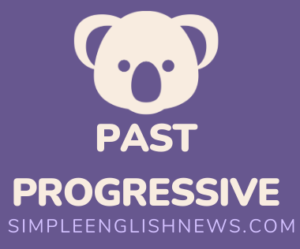
The past progressive tense is created: be (in the past) + verb with ing.
Positive sentence:
We were dancing all night.
It was snowing all day on Saturday.
Negative sentence:
They were not (weren’t) learning enough.
She was not (wasn’t) playing well.
Question:
Was she studying at 5 p.m. yesterday?
Were they talking when you came in?
USE:
- to describe an action in the past which was in progress some time. The time is usually expressed by a time term.
I was preparing for my exam all afternoon.
- to describe actions which were in progress at the same time in the past.
While he was reading the newspaper she was cooking lunch.
- to describe an action which happened at one point-moment in the past.
At ten we were having breakfast.
- to express one of the two actions while one action is described by the simple past tense ( the shorter one).
She was phoning when I entered the room.
- to express a background to the main action when we describe (write or narrate) action in the past.
I was walking down our street when I noticed two strange men. The men got on a bus and went away.
NOTE
When they arrived, she was cooking dinner.= She started cooking before they arrived.
When they arrived, she cooked dinner. = She started cooking after they arrived.
© Simple English News™ / Ahhoy.net